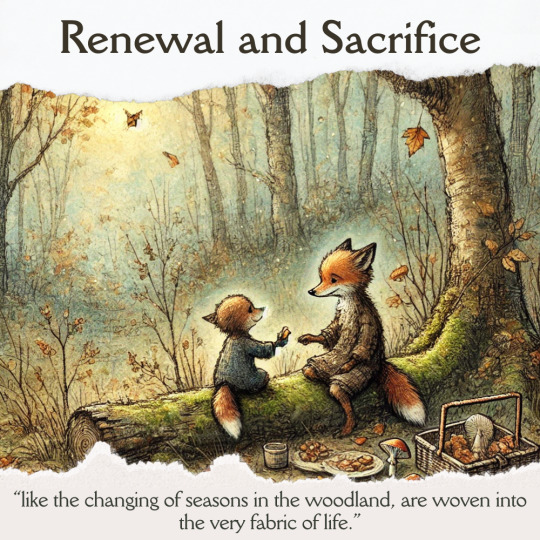#InquiryBasedLearning
Explore tagged Tumblr posts
Text

Research Skills in ATL | Inquiry-Based Learning in IB | MLSI
Research skills in ATL nurture students' ability to formulate questions, explore sources, and think critically.
0 notes
Text
The Tailored Trail: Why Personalized Learning is Not a Luxury, But a Necessity
Imagine a classroom where every child is handed the same textbook, the same assignments, and the same expectations, regardless of their unique talents or challenges. It sounds fair, doesn’t it? But fairness, as it turns out, is not always synonymous with effectiveness. A one-size-fits-all approach to education often leaves some children bored and others bewildered—like asking a hedgehog to sprint…

View On WordPress
#AdaptiveLearning#AlternativeEducation#ChildDevelopment#EducationReform#GrowthMindset#HomeschoolingLife#IndividualizedEducation#InquiryBasedLearning#LearningBeyondTheClassroom#LearningStyles#ParentingWithHumor#PersonalizedLearning#RaisingCuriousKids#SupportingKids#TailoredTeaching#TeachingResilience
0 notes
Text

Floating Egg Experiment:
Why do some things float in water and other sink? What is density? We did a homeschooling experiment to discover just that!
Experiment directions are included so you can do this with your kids or students, as well as a free PDF template so kids can write out their hypothesis and the results that they discover!
Have fun!
#experiment#science#oceans#density#homeschool#northbirdmama#scientific#education#handsonlearning#inquirybasedlearning#saltwater#floating#egg#scientificmethod
0 notes
Text
How to Develop Critical Thinking Skills in School
Critical thinking is an essential skill that students need to develop to succeed in school and beyond. It involves analyzing information, evaluating evidence, and reasoning logically to make informed decisions. Developing critical thinking skills in school can help students become better problem solvers, enhance their creativity, and prepare them for the complexities of the modern world. This article explores various strategies and approaches that can be used to cultivate critical thinking skills in students from elementary school through higher education.
Understanding Critical Thinking
Critical thinking is a multi-faceted cognitive process that includes skills such as analysis, evaluation, inference, and synthesis. According to the American Philosophical Association, critical thinking involves purposeful, self-regulatory judgment that results in interpretation, analysis, evaluation, and inference, as well as the explanation of the evidential, conceptual, methodological, criteriological, or contextual considerations upon which that judgment is based .
Strategies to Develop Critical Thinking Skills
1. Encouraging Inquiry-Based Learning
Inquiry-based learning is a student-centered approach that encourages students to ask questions, conduct research, and develop solutions based on their findings. This method fosters critical thinking by requiring students to engage deeply with the material, consider various perspectives, and draw conclusions based on evidence.
Implementation: Teachers can create a classroom environment that promotes curiosity by posing open-ended questions, facilitating discussions, and encouraging students to explore topics of interest. For example, in a science class, instead of providing a fixed experiment, teachers can ask students to design their own experiments to test a hypothesis.
2. Integrating Problem-Based Learning (PBL)
Problem-Based Learning is an instructional method where students learn through solving complex, real-world problems. PBL helps students develop critical thinking skills by requiring them to identify the problem, gather information, analyze data, and propose solutions.
Implementation: In a social studies class, teachers might present a current global issue, such as climate change, and ask students to work in groups to research the causes, impacts, and potential solutions. This collaborative approach helps students learn to evaluate information critically and consider multiple viewpoints.
3. Using Socratic Questioning
Socratic questioning is a technique that involves asking a series of thought-provoking questions to encourage deeper thinking and reflection. This method helps students examine their assumptions, evaluate the validity of their arguments, and explore the implications of their ideas.
Implementation: Teachers can use Socratic questioning during class discussions by asking questions such as, "What evidence supports your argument?", "How does this perspective compare to others?", and "What are the potential consequences of this action?" This encourages students to think more deeply and critically about the subject matter.
4. Promoting Metacognition
Metacognition refers to the awareness and regulation of one's own thinking processes. Teaching students to think about their thinking helps them become more self-aware and strategic learners, which is essential for critical thinking.
Implementation: Educators can incorporate metacognitive strategies by encouraging students to reflect on their learning processes, set goals, and monitor their progress. For example, after completing an assignment, students can be asked to write a reflection on what strategies they used, what worked well, and what they could improve next time.
5. Incorporating Case Studies
Case studies provide students with real-life scenarios that require critical analysis and decision-making. By examining case studies, students learn to apply theoretical knowledge to practical situations, analyze complex issues, and develop reasoned arguments.
Implementation: In a business class, students might analyze a case study of a company facing ethical dilemmas. They would need to evaluate the situation, consider the stakeholders involved, and propose a course of action based on their analysis. This approach helps students develop critical thinking skills by applying their knowledge to real-world contexts.
6. Encouraging Debates and Discussions
Debates and discussions are effective ways to develop critical thinking skills as they require students to articulate their viewpoints, defend their arguments, and consider opposing perspectives.
Implementation: Teachers can organize debates on controversial topics, encouraging students to research their positions and present their arguments in a structured format. This helps students develop skills in reasoning, analysis, and persuasion.
7. Fostering a Growth Mindset
A growth mindset, as defined by psychologist Carol Dweck, is the belief that abilities can be developed through dedication and hard work. Encouraging a growth mindset in students helps them view challenges as opportunities for growth and fosters resilience and perseverance.
Implementation: Educators can promote a growth mindset by praising effort rather than innate ability, providing constructive feedback, and encouraging students to embrace challenges. For example, when a student struggles with a difficult math problem, the teacher can highlight the learning process and effort involved rather than focusing solely on the correct answer.
8. Using Technology and Digital Tools
Technology can be a powerful tool for developing critical thinking skills. Digital platforms and tools can provide students with access to vast amounts of information, encourage collaboration, and facilitate interactive learning experiences.
Implementation: Teachers can use online discussion forums, virtual simulations, and educational apps to create engaging and interactive learning experiences. For instance, using a platform like Google Classroom, teachers can create collaborative projects where students work together to solve problems and share their findings.
9. Applying Bloom's Taxonomy
Bloom's Taxonomy is a framework that categorizes cognitive skills into six levels: Remembering, Understanding, Applying, Analyzing, Evaluating, and Creating. Using Bloom's Taxonomy, teachers can design activities that promote higher-order thinking skills.
Implementation: Educators can create assignments that move beyond basic recall of information to tasks that require analysis, evaluation, and creation. For example, in a literature class, instead of asking students to summarize a story, teachers can ask them to analyze the motivations of the characters and evaluate the author's message.
10. Encouraging Peer Review
Peer review is a process where students evaluate each other’s work, providing constructive feedback. This not only helps students improve their own work but also develops their ability to critically assess the work of others.
Implementation: In writing classes, teachers can organize peer review sessions where students exchange essays and provide feedback based on specific criteria. This practice helps students develop critical thinking skills by analyzing the strengths and weaknesses of their peers' work and considering how to incorporate feedback into their own revisions.
Conclusion
Developing critical thinking skills in school is essential for preparing students to navigate the complexities of the modern world. By integrating strategies such as inquiry-based learning, problem-based learning, Socratic questioning, metacognition, case studies, debates, fostering a growth mindset, using technology, applying Bloom's Taxonomy, and encouraging peer review, educators can create a learning environment that promotes critical thinking. These skills not only enhance academic performance but also prepare students for lifelong learning and success in their personal and professional lives.
By fostering an environment that encourages curiosity, reflection, and rigorous analysis, educators can help students develop the critical thinking skills they need to succeed in an ever-changing world.
#CriticalThinking#Education#TeachingStrategies#InquiryBasedLearning#ProblemBasedLearning#SocraticQuestioning#Metacognition#CaseStudies#Debates#GrowthMindset#DigitalLearning#BloomsTaxonomy#PeerReview#StudentSuccess#AcademicSkills#Learning#21stCenturySkills#HigherEd#ElementaryEducation#MiddleSchool#HighSchool#EdTech#CollaborativeLearning#Mentorship#LifelongLearning#InnovationInEducation#TeacherTips
0 notes
Text

Middle - (Grade 6 - 8) Grades 6 through 8 students in Grades 6 through 8 have access to Vahe Global's vibrant and educational middle school program. Our school offers a dynamic atmosphere where kids may explore their interests, find new hobbies, and lay solid academic foundations during this critical time of growth. Our knowledgeable instructors provide a well-rounded education that encourages intellectual and emotional development and accompanies students through this life stage transition. Enroll now and unlock a world of possibilities. Contact: +91-7022299634, or +91-7022299635 Visit: https://vaheglobal.co.in/middle-grade-6-8/ #VaheGlobal #MiddleSchoolProgram #Grades6to8 #DynamicLearning #StimulatingEnvironment #ExploringInterests #StrongFoundations #AcademicExcellence #EnrichingExperience #ExperiencedFaculty #HolisticDevelopment #FutureReady #LeadersOfTomorrow #CriticalThinking #InquiryBasedLearning #PersonalizedEducation #EmpoweringStudents #SupportiveCommunity #GrowthMindset #ConfidentLeaders #BuildingCharacter #PreparingForSuccess
0 notes
Text

#Technologyineducation#Onlinelearning#Activelearning#Gamificationineducation#Projectbasedlearning#Personalizedlearning#Flippedclassroom#Blendedlearning#Collaborativelearning#Inquirybasedlearning#Experientiallearning#Multimodallearning#Criticalthinking#Creativityandinnovation#STEMeducation#Entrepreneurshipeducation#Globaleducation#Socialmotionallearning#Culturallyresponsiveteaching#Inclusiveeducation#greeneducation#educators#students#education#learning#community#opportunity#growth#share#future
0 notes
Video
How excited are you for our #webinar?! Did you know that most teachers make the SAME three mistakes when trying out #studentcentered methods in the classroom? In our 35-minute webinar, we will not only point out those mistakes, but explain simple tweaks on how to fix them, lickity split! . Won’t you join us? Registration link in bio! . #igconnect4edu #teachersfollowteachers #inquirybasedlearning #playbasedlearning #teacherideas #iteach #teachersofig https://www.instagram.com/p/Bu3ptOUBg4Z/?utm_source=ig_tumblr_share&igshid=z3d1lymnhw7s
#webinar#studentcentered#igconnect4edu#teachersfollowteachers#inquirybasedlearning#playbasedlearning#teacherideas#iteach#teachersofig
1 note
·
View note
Photo

Snowy days are the best days! #naturebathing #inquirybasedlearning #preschool #holcombfarm #westgranby #playbasededucation #playbasedlearning #childcenteredlearning #openendedlearning #snow #snowingranby #snowinct (at Granby Nature Preschool) https://www.instagram.com/p/CmMtONCpal7/?igshid=NGJjMDIxMWI=
#naturebathing#inquirybasedlearning#preschool#holcombfarm#westgranby#playbasededucation#playbasedlearning#childcenteredlearning#openendedlearning#snow#snowingranby#snowinct
0 notes
Photo

Would you like to hear a message from professor’s office? First, I wish you a great Monday! The second message is about my graduate courses I teach. My graduate students are so empowered to teach children in ways that actually motivates kids to learn after taking my course! Do you think schools should do a better job with teaching children? [Image description: Female in office] #inquiry #inquirybasedlearning #inquirylearning #inquirymindset #inquirybased #inquiries #motivation #educationispower #educationmatters (at Upstate N.Y) https://www.instagram.com/p/CcxY8KnOeCl/?igshid=NGJjMDIxMWI=
#inquiry#inquirybasedlearning#inquirylearning#inquirymindset#inquirybased#inquiries#motivation#educationispower#educationmatters
0 notes
Photo

#Screenprinting workshop at 💚👉 @hopefully_made Just a few more weeks before our next workshop! We can not wait to get printing with you! 📸 @joshua_james_photography_ @screenstretch . . . . . #creativeclass #creativityforkids #designprocess #designproject #elementaryteacher #inquirybasedlearning #inquirylearning #inquirymindset #ks2 #learningthroughplaying #loveteaching #makermovement #nqt #primaryteacher #primaryteaching #scienceteachers #steameducation #stem #stemlearning #teachersofinsta #teachingideas #canvacreativeclass #creativeclass6 #creativeclassleaders #creativeclassroomchallenge #atibacreativeclass #creativeclassessg #mncreativephotoclass #creativeevolutionclassexperience (at Hopefully Made) https://www.instagram.com/p/CUF7oJts8k0/?utm_medium=tumblr
#screenprinting#creativeclass#creativityforkids#designprocess#designproject#elementaryteacher#inquirybasedlearning#inquirylearning#inquirymindset#ks2#learningthroughplaying#loveteaching#makermovement#nqt#primaryteacher#primaryteaching#scienceteachers#steameducation#stem#stemlearning#teachersofinsta#teachingideas#canvacreativeclass#creativeclass6#creativeclassleaders#creativeclassroomchallenge#atibacreativeclass#creativeclassessg#mncreativephotoclass#creativeevolutionclassexperience
1 note
·
View note
Text
Five Fabulous Friday Finds - Week 6
And so the wobble continues!
(1) Having started a new program with a curriculum that I helped write, it is safe to say that my wobble now has become a dance of sorts. None of the lessons I use are similar to what I used last year. In fact, the goal is to create lessons for four years, with each year composed of different lessons, especially when considering the fact that the students in my social skills group will see me throughout the entirety of their high school career! I now am at a point where my wobbly dance is so great that I have started to stress myself out more so than usual, primarily because I try to integrate as much connected learning as I can, while also finding ways to keep my kiddos engaged.

(2) My boyfriend and I recently participated in an “Escape the Room” adventure, which then made me think of how fun it would be to have my students perform a similar task where they “Escape the Classroom”. Well, thank goodness for Pinterest because I started getting overwhelmed with the idea of trying to put together this entire activity on top of my every day duties. Pinterest led me Teachers Pay Teachers, where Pathway2Success already has an “Escape the Classroom” bundle for purchase! Who better understands the wobble of a teacher than another teacher??
(3) Amy introduced an article about designing the classroom to maintain an air of openness while also pursuing inquiry. I must admit that this seems to be a very daunting task, especially when we (at least in my district) are faced with students that outright and openly tell us “they don’t care” and that they are okay with getting zeroes. Ideally, the open and inquiry based classroom is the ideal classroom, but how do we get there when we constantly battle this “I don’t care” mentality??
(4) John Spencer brings us the following video where he explains the concept behind inquiry-based learning. I especially LOVE how he incorporated Harry Potter into the video. Not only did the Harry Potter reference make the video more relatable, but it touched a special place in my Potter-loving heart. ❤️
youtube
(5) Pinterest led me to an article on “How to be a Great Teacher.” The last point really hit home for me as it reminds readers to be grateful to one’s own teachers. Working in the high school from where I graduated, I daily see teachers I once had when I was a student. I recently had one of these former teachers tell me how nice it is to have me as a colleague. All I could think was how I would not be here had it not been for them. So, for the teachers who taught me, for the teachers I with whom I work, and for the teacher who I strive to be...this all is for you! Thank you!
Always,
Ms. J
#ED677#FiveFabulousFridayFinds#wobbledance#teacherspayteachers#leanonme#inquirybasedlearning#Pinterest#HowToBeAGreatTeacher#ThankYou
1 note
·
View note
Text
Teaching Children About Renewal and Sacrifice: The Great Mystery of Why We Can’t Keep Every Shiny Pebble
Introducing children to the concepts of renewal and sacrifice might seem as daunting as explaining why foxes don’t just raid the henhouse every night—it’s a matter of balance, after all. Much like the changing of the seasons in the woodland, these lessons are woven into the fabric of life. And yet, when faced with a six-year-old clutching a rock, a wilted flower, and a half-eaten cookie,…

View On WordPress
#CharacterBuilding#ChildDevelopment#EducationMatters#EmotionalGrowth#FaithAndEducation#GrowthMindset#HomeschoolingLife#InquiryBasedLearning#InspireYoungMinds#LearningThroughStories#LifelongLessons#NatureLessons#ParentingWithPurpose#RaisingResilientKids#RenewalAndSacrifice#TeachingCuriosity#TeachingEmpathy#TeachingFaith#TeachingValues
0 notes
Photo

Reveal pile 2 - fire quartz . . . #pickacard #pickacrystal #tarotpickacard #tarotreading #freetarotreading #tarotista #collectivereading #intuitivereading #dailyoracle #dailyguidance #soulart #soulmessages #chanelledmessage #higherself #guidance #tarotguidance #psychicreading #inquirybasedlearning #witchesofinstagram🔮🌙 https://www.instagram.com/p/CDERj_VlB9l/?igshid=18qkntelmii8u
#pickacard#pickacrystal#tarotpickacard#tarotreading#freetarotreading#tarotista#collectivereading#intuitivereading#dailyoracle#dailyguidance#soulart#soulmessages#chanelledmessage#higherself#guidance#tarotguidance#psychicreading#inquirybasedlearning#witchesofinstagram🔮🌙
0 notes
Text
Cultivating Critical Thinking Skills in the Classroom
In an ever-changing world filled with complex problems and information overload, the ability to think critically has become essential. As educators, we play a vital role in nurturing and cultivating critical thinking skills in our students. In this blog, we will explore the importance of critical thinking and provide practical strategies that can be implemented in the classroom to foster this invaluable skill. By embracing these techniques, we can empower our students to become independent, analytical thinkers capable of navigating the challenges of the modern world.
Understanding the Significance of Critical Thinking: Explain the significance of critical thinking in today's society. Discuss how critical thinking involves analyzing information, evaluating evidence, and making reasoned judgments. Highlight its importance in problem-solving, decision-making, and effective communication.
Encouraging Questioning and Inquiry: Promote a classroom culture that encourages students to ask questions and explore concepts in-depth. Encourage curiosity and curiosity-driven inquiry. Teach students how to ask thoughtful questions, investigate different perspectives, and seek evidence to support their claims.
Engaging in Socratic Discussions: Implement Socratic discussions as a platform for critical thinking. Encourage students to engage in respectful, open-ended dialogues that challenge assumptions and encourage reflection. Guide students to analyze different viewpoints, support arguments with evidence, and evaluate the strengths and weaknesses of various perspectives.
Analyzing and Evaluating Information: Teach students how to analyze and evaluate information critically. Provide them with tools and frameworks to assess the credibility, reliability, and bias of sources. Help them differentiate between fact and opinion, distinguish logical arguments from fallacies, and identify relevant evidence to support their claims.
Problem-Based Learning: Incorporate problem-based learning activities that require students to apply critical thinking skills to real-world scenarios. Present them with complex problems or case studies that necessitate analysis, synthesis, and evaluation. Encourage collaborative problem-solving and guide students through the process of finding creative solutions.
Developing Information Literacy Skills: Equip students with information literacy skills to navigate the vast sea of information available to them. Teach them how to find reliable sources, evaluate online information critically, and discern credible information from misinformation or propaganda. Help them develop the ability to identify biases and separate reliable evidence from personal opinions.
Integrating Reflective Practices: Integrate reflective practices into the learning process to encourage metacognition and self-assessment. Prompt students to reflect on their thinking processes, identify areas for improvement, and set goals for enhancing their critical thinking skills. Encourage them to keep learning journals or portfolios to document their reflections and growth.
Fostering a Growth Mindset: Emphasize the importance of a growth mindset in developing critical thinking skills. Teach students that intelligence and abilities can be developed through effort and practice. Encourage them to embrace challenges, view mistakes as learning opportunities, and persist in the face of setbacks.
Conclusion: Cultivating critical thinking skills in the classroom is an investment in our student's future success. By creating a culture of inquiry, engaging in Socratic discussions, analyzing information, and integrating problem-based learning, we can empower students to become independent, analytical thinkers. With these strategies and a growth mindset, we can equip our students with the essential skills to navigate the complexities of the modern world and make informed decisions that positively impact their lives and society.
#CriticalThinking#CriticalThinkingSkills#ClassroomCulture#InquiryBasedLearning#SocraticDiscussions#ProblemBasedLearning#InformationLiteracy#ReflectivePractices#GrowthMindset#IndependentThinkers
0 notes
Text
Kinder Garten (LKG - UKG)
Vahe Global Academy's Kindergarten classes provides the perfect start to your child's educational journey. Our highly trained and experienced faculty use a blend of play-based and inquiry-based learning to help children develop essential cognitive, social, and emotional skills. Give your child the gift of a great start in life. Enroll your children in our Kindergarten curriculum today!
Please do visit our Website below to know more
Contact: +91-7022299634, or +91-7022299635 Visit: https://vaheglobal.co.in/preprimary/

#VaheGlobalAcademy#KindergartenProgram#PlayBasedLearning#InquiryBasedLearning#ChildDevelopment#NurturingEnvironment#EducationForLife#GreatStartInLife#Kindergarten#EarlyChildhoodEducation#NurturingYoungMinds#JoyOfLearning#DreamBig#ChildhoodWonder#FutureLeaders#FoundationForSuccess#EmpoweredYoungMinds#LKG#UKG
0 notes
Photo

Hoy, un 28 de mayo de 2020, trajimos todos el jardín de infantes a casa. 🙌Hoy estamos todos, maestras, padres, tíos, abuelos, armando desde casa un cuento, un disfraz, una música para bailar, todos estamos llevando ese espacio de recreación, de expresión y de alegría al hogar, para mostrarnos amorosamente que el desarrollo del ser de nuestros niños, acompañados con respeto, con límites y con planificación es posible desde casa. 👨👩👦👦👩👧👦👨👧👩👦 . O quizá esta cuarentena nos esta permitiendo sanar ese infante 💃🕺herido que se perdió en el camino a la adultez 👨👩la posibilidad de ordenar en su ser que hay momentos para estar con *los pies en la tierra* para resolver,decidir y accionar pero que también esa infancia evocada nos permite estar en algunos ratitos con *los pies en el aire*, imaginando, creando, soñando que todo se puede integrar.💞 . 👯♂️¡Feliz día a las maestras que ponen todo de ellas para que desde casa recordemos lo hermoso que es jugar!👯♀️ . #earlylearning #iteachkinder #earlychildhood #primaryteacher #earlyyears #firstgradeteacher #teachergram #kindergarteners #anaokulu #school #learningthroughplay #etkinlik #itim #elementaryteacher #inquirybasedlearning #earlyed #cbektks #photooftheday #montessoritoddler #maestrajardinera #jardindeinfantes #infanciarespetada #cuarentena #aprenderdesdecasa #familiayjardinesmaternales https://www.instagram.com/p/CAv2Ym7pxha/?igshid=13pwog3a94dvj
#earlylearning#iteachkinder#earlychildhood#primaryteacher#earlyyears#firstgradeteacher#teachergram#kindergarteners#anaokulu#school#learningthroughplay#etkinlik#itim#elementaryteacher#inquirybasedlearning#earlyed#cbektks#photooftheday#montessoritoddler#maestrajardinera#jardindeinfantes#infanciarespetada#cuarentena#aprenderdesdecasa#familiayjardinesmaternales
0 notes